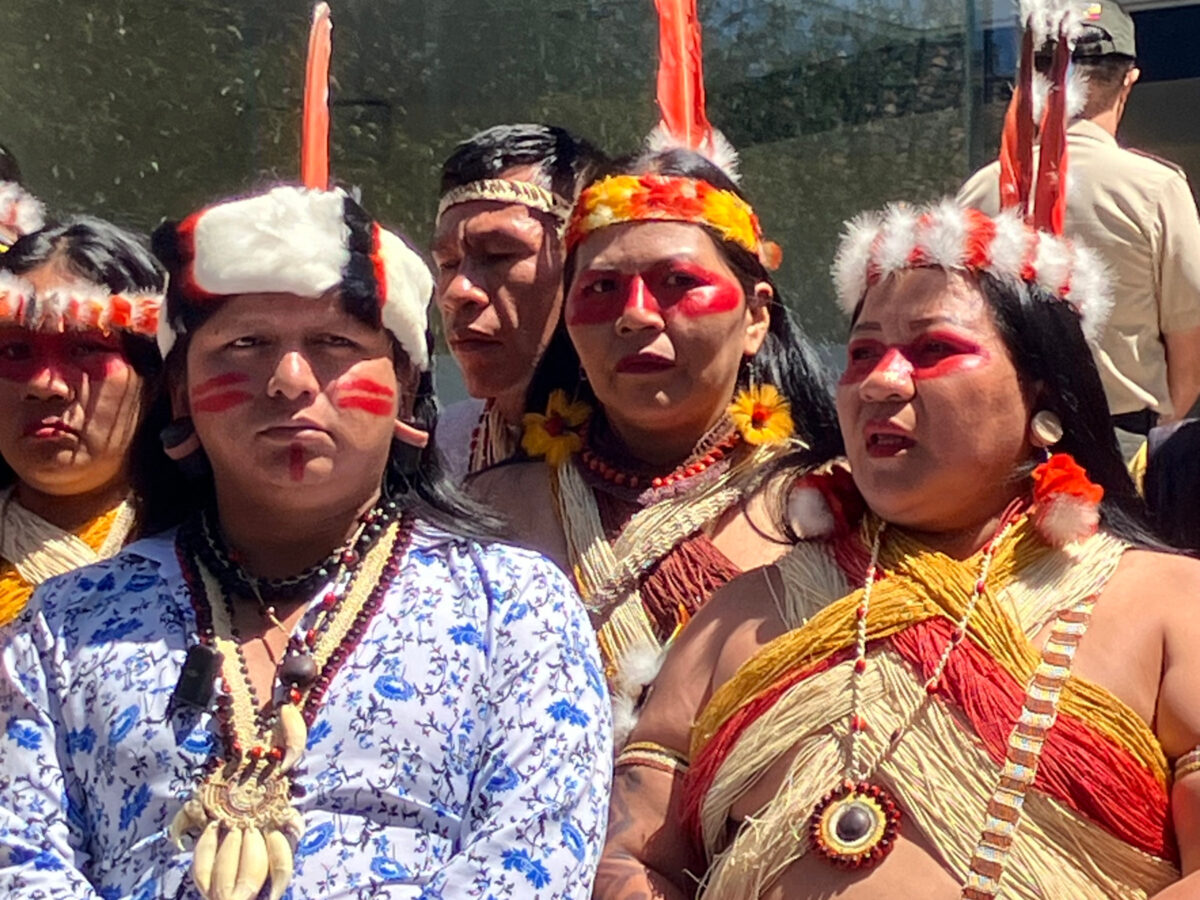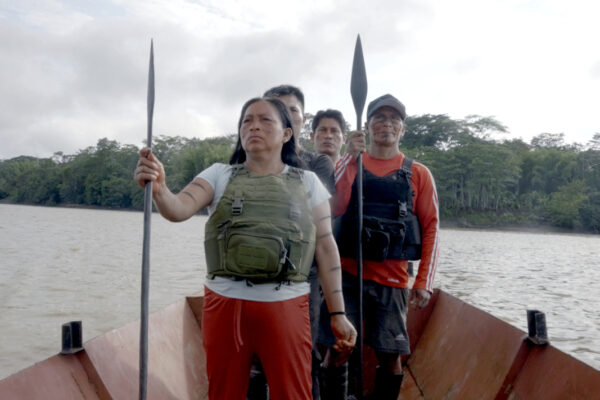From the Amazon rainforest town of Puyo to the halls of Congress and the streets of Quito, the chants of “¡Sí a la vida! ¡Sí a Yasuní!” reverberated throughout Ecuador last week as the Waorani marked the anniversary of the country’s historic vote to keep fossil fuels in the ground and lambasted the government for its failure to meet the one-year deadline to terminate all oil activities.
Over a year ago, nearly 60% of Ecuador’s population voted for a referendum to keep over 700 million barrels of crude permanently in the ground. It’s the first time a country would abandon oil expansion plans and shut down existing production prematurely, let alone from an exporter where oil rents are roughly 6% of the country’s GDP.
The government was given one year by its Constitutional Court to implement the “progressive and orderly” closure of wells, dismantling of infrastructure, and remediation and restoration of the area of the Ishpingo, Tambococha, and Tiputini (ITT) oil fields in the Block 43 concession along the remote eastern edge of Yasuní National Park.
But over the course of the year, President Daniel Noboa and his administration sought to delay implementing the will of voters and keep the crude flowing. As the August 31 deadline mandated by the popular referendum approached, Noboa’s only action was to issue an executive decree establishing an interagency committee – nine full months after the referendum results – to oversee the decommissioning process, excluding the participation of the Waorani Indigenous people who live there.
Faced with this deliberate inaction and egregious violation of their right to participate in decisions that affect their ancestral lands, the Waorani sounded the alarm. They declared a state of emergency in their territory and began organizing.
On August 20, the one-year anniversary of the vote, the National Association of Waorani of Ecuador (NAWE) mobilized to Quito where they were joined by the national Indigenous federation CONAIE and civil society groups in a protest outside of Ecuador’s Energy Ministry to denounce the government’s failure to meet the deadline.
The Waorani then held the first Yasuní Summit in the jungle town of Puyo to lay out their vision for implementing the resolution and a 100-day action plan. Over 300 people joined, including frontline communities from Ecuador’s northern Amazon, Peru, and Bolivia who shared first-hand accounts of the devastating impact the oil industry has had on the ecosystems and health of Amazonian peoples.
On the last day of the Summit, the Waorani resolved to present to the Constitutional Court, the government and the national and international community their plan for the “closure, dismantling, ecological restoration and social reparation of Yasuní.”
The plan details a series of immediate actions for the first 100 days after the passage of the deadline, and long-term actions to achieve the closure and remediation of the more than 240 wells that exist in Block 43. Their demands include the need for the government to plan the well closure process with the participation and consultation of the Waorani communities and other affected Indigenous nationalities, carry out an accounting of all environmental liabilities and damages, cease using divide and conquer tactics among communities, and provide new sources of employment for the restoration of the affected areas.
In response to this pressure, the government was forced to extend an invitation to the Waorani to join the inaugural meeting of the interagency committee on the eve of the Yasuní Summit. And on the first day of the summit, the government finally shut down the first of 247 wells inside the ITT fields – a symbolic gesture that underscores its desire to drag out well closure until it can squeeze out every last drop of crude.
The government and Petroecuador are petitioning the court for a hearing to extend the timeframe for implementation of the referendum to five years, allowing many of the wells to “naturally decline,” going against the expressed will of the voters and putting the Tagaeri and Taromenane – two nomadic Indigenous peoples who live in isolation inside the park – at grave risk.
The Waorani then took to the streets of Quito outside the Constitutional Court to petition the court that their action plan be considered in the process of evaluating and monitoring compliance with the referendum, that their participation be guaranteed in any hearing or visit that the Court is going to carry out, that the government’s non-compliance with the deadline be declared and those responsible be identified, and that immediate reparation measures that include them are ordered.
After filing their petition with the court, the delegation of Waorani – many barefoot – marched across the blazing Quito sidewalks to Congress, where they joined Parliamentarians for a Fossil Free Future, a network of 800 legislators from 95 countries, in calling for a full, fair, and funded phaseout of fossil fuels and transition to renewable energy systems. The event, which included representatives of Ecuador’s parliament, as well as representatives from Brazil, Colombia, and Bolivia, launched an official inquiry into the elimination of fossil fuels in the Amazon, which will be presented to all parties at COP30.
Ecuador’s citizens made history by voting to keep fossil fuels in the ground, establishing the world’s first such benchmark in the urgent effort to phase out fossil fuels. But the government’s failure to implement the referendum sets a dangerous precedent implying that victories at the ballot box, in the courts, or in campaigns don’t translate into the tangible change needed for communities or the climate.
At Amazon Watch, we’ve been working to stop drilling in Yasuní since 2003, when we coordinated with local allies like Acción Ecológica to derail initial investment in the ITT fields by companies like Chevron, Occidental Petroleum, and Exxon.
We collaborated with the Ministry of Foreign Affairs in 2007 when the Ecuadorian government launched the pioneering Yasuní-ITT proposal to keep the oil in the ground in exchange for half of the country’s forgone revenue, and we supported civil society efforts to gather signatures to qualify for a referendum after the government once again approved drilling.
Now, over two decades later, we are providing legal, communications, and campaign support to NAWE, and we remain committed to keeping fossil fuels in the ground underneath Yasuní forever and defending the right of the Waorani to participate in the closure and remediation process and decide what takes place in their territories.
The stakes couldn’t be higher, for the Waorani or the world. Take action now to stand with NAWE and hold Ecuador’s government to account!













